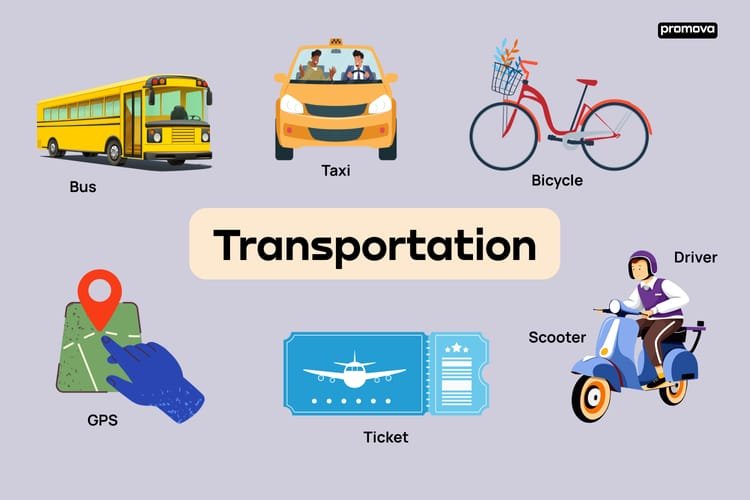INTRODUCTION
As we have heard the great saying that “A PENNY SAVED IS A PENNY EARNED”.Saving is considered as a good habit for any household or any business. Saving money on everyday expenses is a crucial aspect of financial well-being. It helps you build a safety net, achieve financial goals, and reduce financial stress. Whether you’re looking to save for a big purchase, pay off debt, or just improve your overall financial health, finding ways to cut costs on daily expenses can make a significant difference. This comprehensive guide will explore various strategies to help you save money on everyday expenses without sacrificing your quality of life.
UNDERSTANDING YOUR EXPENSES
Before diving into specific saving strategies, it’s essential to understand your current spending habits. Start by tracking your expenses for a month. Categorize your spending into essential and non-essential expenses. Essential expenses include rent/mortgage, utilities, groceries, transportation, and insurance. Non-essential expenses cover dining out, entertainment, subscriptions, and other discretionary spending.
HOUSING:-
1.Rent or Mortgage

- **Refinance Your Mortgage**: If you own your home, refinancing your mortgage to a lower interest rate can significantly reduce your monthly payments. Research current rates and consult with a mortgage advisor to determine if refinancing is a viable option.
- **Negotiate Your Rent**: If you’re a renter, try negotiating with your landlord for a lower rent, especially if you’re a long-term tenant with a good payment history. Offer to sign a longer lease in exchange for a reduced rate.

- **Energy Efficiency**: Invest in energy-efficient appliances and light bulbs to reduce your electricity consumption. Simple actions like turning off lights when not in use and unplugging devices can also make a difference.
- **Thermostat Control**: Use a programmable thermostat to regulate your home’s temperature efficiently. Lower the thermostat when you’re not home and during the night to save on heating and cooling costs.
- **Water Usage**: Install low-flow showerheads and faucets to reduce water consumption. Fix any leaks promptly and consider taking shorter showers to save water and reduce your utility bills.

- **Plan Your Meals**: Create a weekly meal plan and make a shopping list before heading to the grocery store. Stick to your list to avoid impulse purchases and reduce food waste.
- **Buy in Bulk**: Purchase non-perishable items like rice, pasta, and canned goods in bulk to save money. Be sure to compare unit prices to ensure you’re getting the best deal.
- **Use Coupons and Discounts**: Take advantage of coupons, store discounts, and loyalty programs to save on groceries. Many stores offer digital coupons through their apps, making it easy to save on your purchases.
- **Shop Seasonally**: Buy fruits and vegetables that are in season, as they are often cheaper and fresher. Consider visiting local farmers’ markets for better deals on fresh produce.
- **Cook at Home**: Prepare meals at home instead of dining out. Not only is cooking at home cheaper, but it also allows you to control the ingredients and portion sizes.
3.Transportation

- **Plan Your Meals**: Create a weekly meal plan and make a shopping list before heading to the grocery store. Stick to your list to avoid impulse purchases and reduce food waste.
- **Buy in Bulk**: Purchase non-perishable items like rice, pasta, and canned goods in bulk to save money. Be sure to compare unit prices to ensure you’re getting the best deal.
- **Use Coupons and Discounts**: Take advantage of coupons, store discounts, and loyalty programs to save on groceries. Many stores offer digital coupons through their apps, making it easy to save on your purchases.
- **Shop Seasonally**: Buy fruits and vegetables that are in season, as they are often cheaper and fresher. Consider visiting local farmers’ markets for better deals on fresh produce.
- **Cook at Home**: Prepare meals at home instead of dining out. Not only is cooking at home cheaper, but it also allows you to control the ingredients and portion sizes.
4.Entertainment

- **Streaming Services**: Evaluate your streaming service subscriptions and cancel any that you don’t use regularly. Consider sharing subscriptions with family or friends to reduce costs.
- **Library**: Take advantage of your local library for free access to books, movies, and digital media. Many libraries also offer free events and workshops.
- **DIY Entertainment**: Find free or low-cost entertainment options, such as hiking, picnicking, or visiting local parks. Host game nights or movie nights at home instead of going out.
- **Discounts and Deals**: Look for discounts and deals on entertainment activities. Websites like Groupon offer discounted tickets to events, attractions, and activities.
- **Cut the Cord**: Consider canceling your cable TV subscription and switching to cheaper streaming services or antenna TV.
5.Health and Fitness

- **Gym Membership**: Evaluate your gym membership and consider canceling it if you don’t use it regularly. Look for free or low-cost workout options, such as home workouts, outdoor activities, or community fitness classes.
- **Preventive Care**: Invest in preventive healthcare to avoid costly medical bills in the future. Regular check-ups, vaccinations, and a healthy lifestyle can help you stay healthy and reduce medical expenses.
- **Generic Medications**: Opt for generic medications instead of brand-name drugs. They are usually cheaper and just as effective.
- **Healthy Eating**: Maintain a balanced diet to stay healthy and avoid medical expenses. Incorporate fruits, vegetables, whole grains, and lean proteins into your meals.
- **Health Insurance**: Review your health insurance plan to ensure it meets your needs. Shop around during open enrollment periods to find the best coverage at the lowest cost.
6.Shopping

- **Thrift Stores**: Shop at thrift stores and consignment shops for clothing, furniture, and household items. You can find gently used items at a fraction of the cost of new ones.
- **Sales and Discounts**: Take advantage of sales, discounts, and clearance events. Sign up for store newsletters to receive notifications about upcoming sales and promotions.
- **Quality Over Quantity**: Invest in high-quality items that will last longer, even if they are more expensive upfront. This can save you money in the long run by reducing the need for frequent replacements.
- **Cashback and Rewards**: Use cashback and rewards programs when shopping. Many credit cards offer cashback on purchases, and some apps provide cashback or points for shopping at specific stores.
- **DIY Repairs**: Learn to do simple repairs and maintenance tasks yourself instead of hiring professionals. There are many online tutorials and resources to help you with DIY projects.
7.Personal Finance Management

- **Budgeting**: Create a budget to track your income and expenses. Use budgeting apps or spreadsheets to monitor your spending and identify areas where you can cut costs.
- **Automate Savings**: Set up automatic transfers to your savings account to ensure you save regularly. Even small amounts can add up over time.
- **Debt Repayment**: Focus on paying off high-interest debt first to reduce the overall interest you pay. Consider consolidating your debt to lower interest rates and simplify payments.
- **Emergency Fund**: Build an emergency fund to cover unexpected expenses. Aim to save at least three to six months’ worth of living expenses.
- **Financial Education**: Continuously educate yourself about personal finance. Read books, take online courses, and follow financial blogs to improve your money management skills.
Cutting Costs on Everyday Items
1.Food and Dining
- **Brown Bag Lunches**: Pack your lunch instead of eating out. This can save you a significant amount of money over time.
- **Drink Water**: Opt for water instead of sugary drinks or sodas. Not only is it healthier, but it’s also cheaper.
- **Bulk Cooking**: Cook meals in bulk and freeze portions for later. This saves time and money, and ensures you have ready-to-eat meals on busy days.
- **Store Brands**: Choose store brands over name brands for groceries and household items. They are often cheaper and of comparable quality.
- **Limit Dining Out**: Reduce the frequency of dining out. When you do eat out, look for restaurants with specials or use coupons to save money.
2.Resources

- **Energy Audits**: Conduct an energy audit of your home to identify areas where you can improve efficiency and reduce costs.
- **Smart Power Strips**: Use smart power strips to reduce energy consumption by turning off electronics when they are not in use.
- **Weatherproofing**: Weatherproof your home by sealing windows and doors to prevent drafts and improve heating and cooling efficiency.
- **Solar Panels**: Consider installing solar panels to reduce your electricity bills. Many governments offer incentives and rebates for solar panel installations.
- **Efficient Appliances**: Replace old appliances with energy-efficient models. Look for the Energy Star label to find appliances that meet efficiency standards.
3.Personal Care

- **At-Home Treatments**: Do your own manicures, pedicures, and haircuts at home. There are many tutorials online to help you achieve professional results.
- **Limit Salon Visits**: Reduce the frequency of salon visits by stretching out the time between appointments. Use at-home coloring kits instead of salon dye jobs.
- **Coupons and Samples**: Use coupons and look for free samples for personal care products. Many stores and brands offer promotions to help you save money.
- **Subscription Services**: Cancel unused subscription services for beauty and personal care products. Use only what you need to avoid wastage.
- **Multi-Use Products**: Choose multi-use products, such as a shampoo and conditioner combo, to save money and simplify your routine.
4.Technology and Subscriptions

- **Bundling Services**: Bundle your internet, phone, and TV services to save money. Many providers offer discounts for bundled packages.
- **Review Subscriptions**: Regularly review your subscriptions and cancel those you no longer use or need. This includes streaming services, magazine subscriptions, and online memberships.
- **Use Free Alternatives**
: Explore free alternatives for paid software and apps. Many open-source programs offer similar functionality at no cost.
- **Negotiate Bills**: Contact your service providers to negotiate lower rates for your internet, phone, and TV services. Many companies offer discounts for long-term customers or those willing to sign a contract.
- **Buy Refurbished**: Consider buying refurbished electronics instead of new ones. Refurbished items are often cheaper and come with warranties.
5.Mindful Spending

- **Needs vs. Wants**: Differentiate between needs and wants. Prioritize spending on necessities and limit discretionary spending.
- **Delayed Gratification**: Practice delayed gratification by waiting before making non-essential purchases. This helps reduce impulse buying and ensures you really need the item.
- **Mindful Shopping**: Be mindful of your shopping habits. Avoid shopping when you’re emotional or bored, as this can lead to unnecessary purchases.
- **Spending Limits**: Set spending limits for discretionary categories, such as entertainment and dining out. Stick to these limits to control your spending.
- **Cash Only**: Use cash for discretionary spending to limit how much you spend. This can help you stay within your budget and avoid overspending.
6.Long term strategies for saving money

- **Financial Goals**: Set clear financial goals and create a plan to achieve them. This could include saving for a down payment on a house, building an emergency fund, or planning for retirement.
- **Investment**: Invest your savings to grow your wealth over time. Consider low-cost index funds, stocks, bonds, and real estate as potential investment options.
- **Insurance Review**: Regularly review your insurance policies to ensure you have the right coverage at the best price. Shop around for better rates and adjust your coverage as needed.
- **Continual Learning**: Keep learning about personal finance and money-saving strategies. Attend workshops, read books, and follow financial experts to stay informed.
- **Financial Advisor**: Consider consulting a financial advisor for personalized advice and strategies to achieve your financial goals. A professional can help you create a comprehensive financial plan and offer insights into effective money management.
Conclusion
It helps us to learn a very important thing-That we should be happy in what we can afford or what is needed.It helps us to not be materialistic but makes us practical.Saving money on everyday expenses is a practical and achievable goal that can significantly improve your financial health. By understanding your spending habits, making informed choices, and implementing various cost-saving strategies, you can reduce your expenses without compromising your lifestyle. Start with small changes and gradually incorporate more strategies to maximize your savings. With discipline and a proactive approach, you can achieve your financial goals and enjoy greater financial security.It also prepares you for many unforeseen conditions like a medical emergency.
DO FOLLOW-https://www.youtube.com/channel/UCfhRdXWdF—y3kL2hygjMA